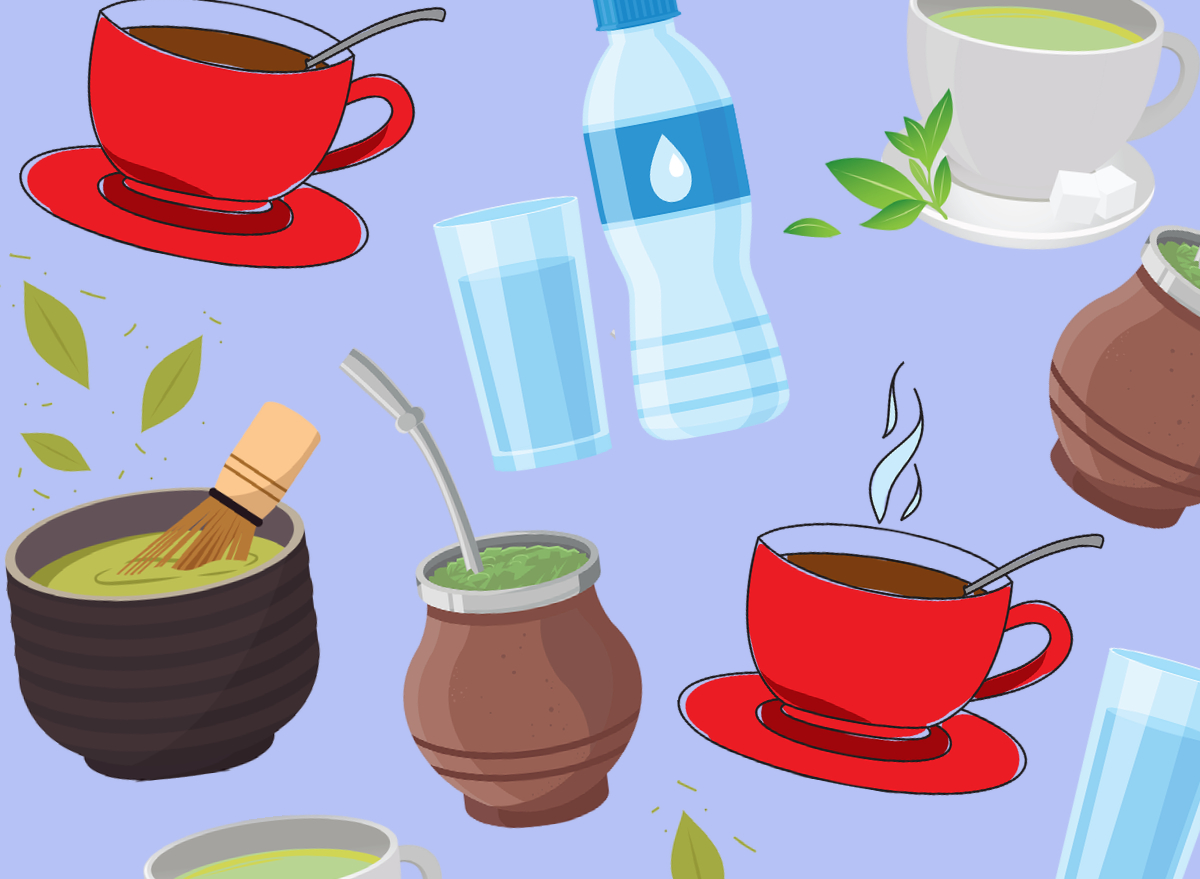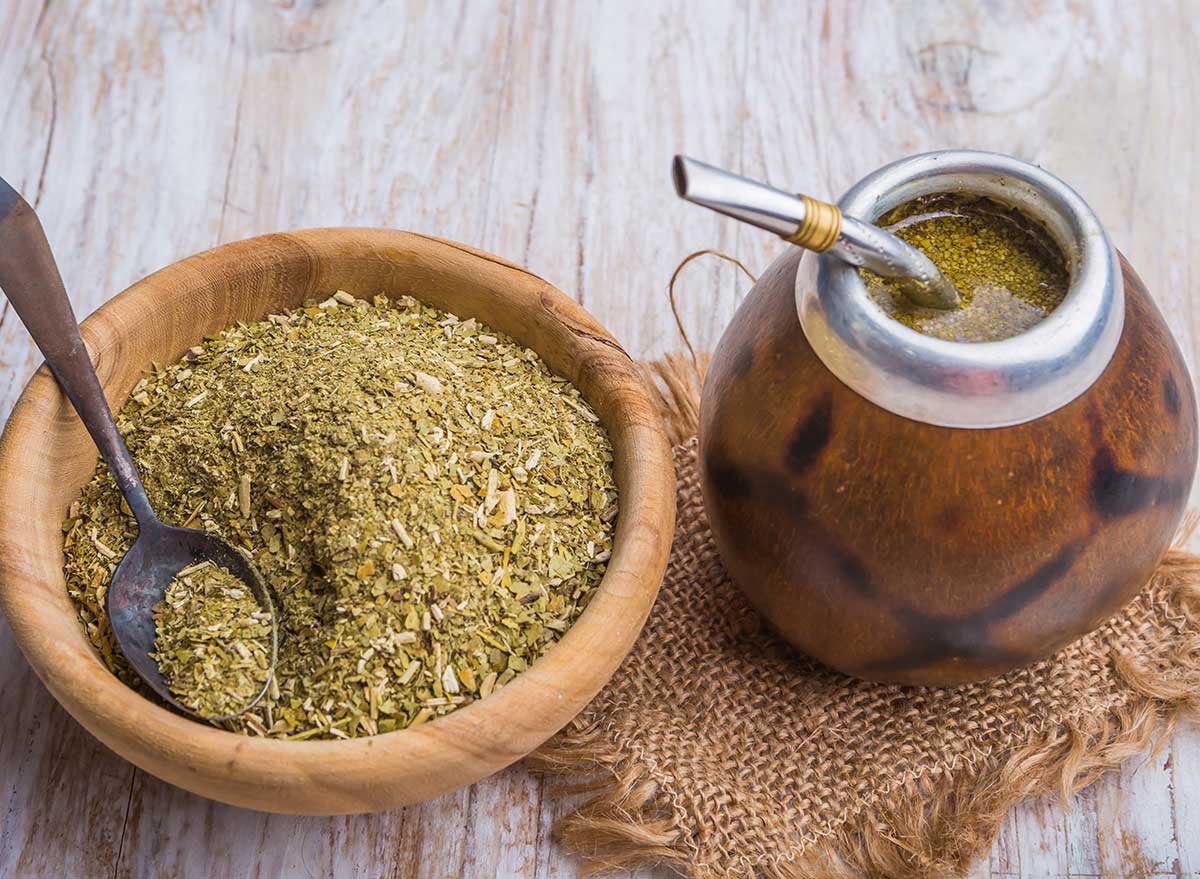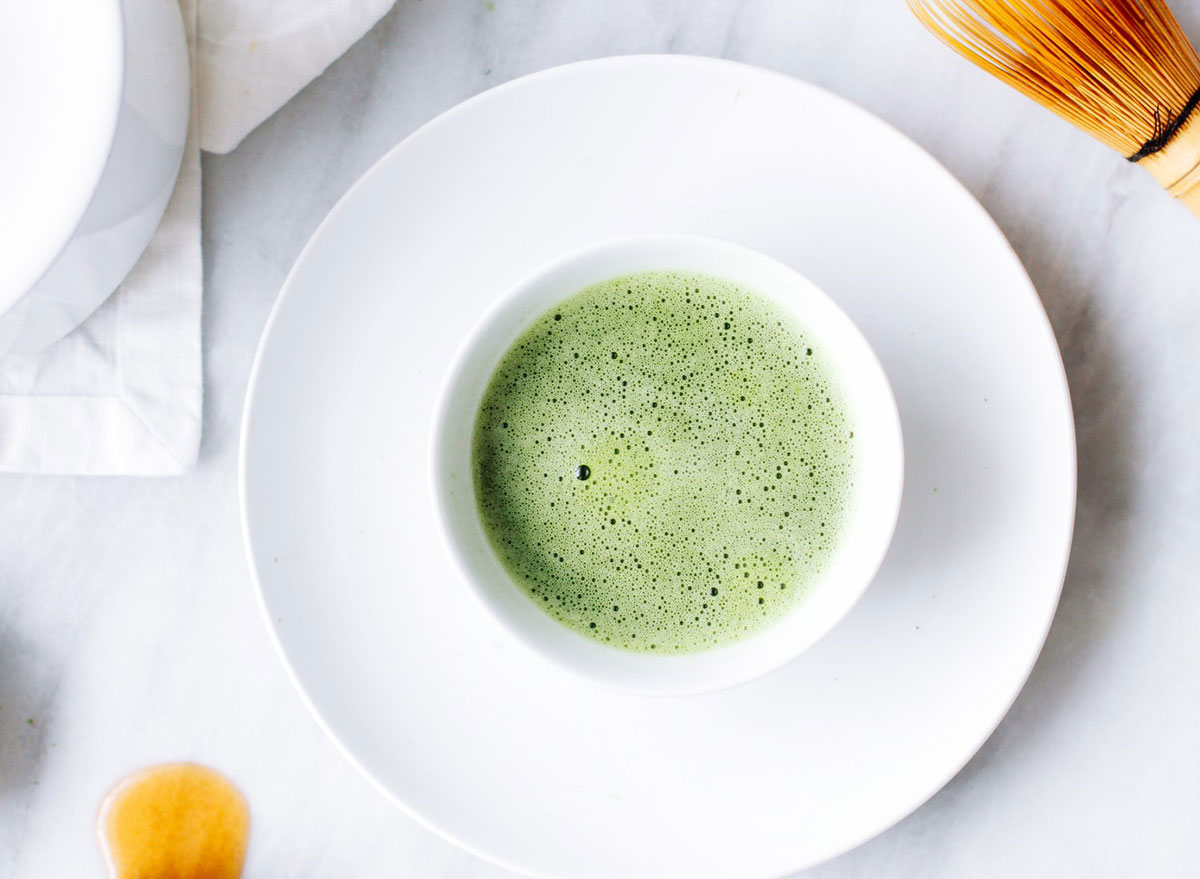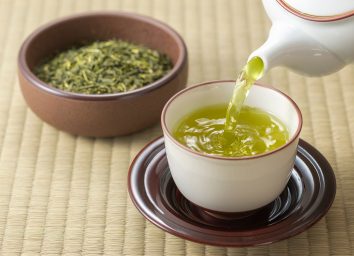5 Beverages That Can Add Years to Your Life, According to Science

When you think of leading a healthy lifestyle, drinking ample liquids is hopefully at the top of your mind. From managing weight to keeping your kidneys healthy, ensuring you’re staying hydrated is key, and some of your favorite beverages offer their own host of additional health benefits.
Below, you’ll see we examined the science behind five everyday beverages that could be tacking years onto your life—yes, as in helping you live longer—and you may not even know it. After, be sure to read The 7 Healthiest Foods to Eat Right Now!
Coffee

Coffee lovers, it’s time to rejoice. That morning cup of java could be giving your heart some extra love. According to the findings of a recent analysis published in the American Heart Association journal Circulation: Heart Failure, sipping on just one 8-ounce cup of coffee each day was associated with a decreased risk of heart failure. The key? It has to be caffeinated.
Not to mention, one of the studies included in this larger study revealed that people who drank two cups of coffee each day had a 30% lower risk of heart failure. Of course, there is such a thing as overdoing your coffee consumption. One new study suggests that drinking six or more cups of coffee each day can increase the number of lipids (fats) in your blood and significantly increase your risk of heart disease.
Bottom line: Aim to drink 1-2 cups of coffee per day to feel energized and potentially reap heart health benefits.
For more, check out 15 Facts About Coffee You Never Knew.
Green tea

When you fire up the ole kettle on the stove to make yourself some green tea, do you do it because you want a warm and calming beverage to enjoy, or do you do it to lower your cholesterol? Wait, what?
Several studies over the past decade have indicated green tea can yield positive effects on heart health, particularly by reducing your levels of LDL—aka the harmful type of cholesterol.
Over time, if LDL builds up in your artery walls (in the form of plaque) this can cause a form of heart disease called atherosclerosis. And, if the artery becomes blocked from plaque buildup, this could even lead to stroke or heart attack.
Bottom line: Incorporating more green tea into your diet may not only help you unwind after a stressful day, but it may also help you improve your heart health.
Yerba Mate

If you haven’t started sipping on yerba mate yet, now is the time. The caffeinated, herbal tea is made from steeping both twigs and leaves of the llex paraguariensis plant. The tea is largely produced in Paraguay, Brazil, and Argentina, however, there are several brands in U.S. supermarkets that sell yerba mate. Each cup boasts about 85 milligrams of caffeine, which is nearly equivalent to what a cup of coffee offers.
Similar to green tea, yerba mate (among its many health benefits) may help to reduce LDL levels, as per one 2009 study. In addition, yerba mate may also help to lower blood glucose (sugar) levels, which is especially helpful for those who have diabetes.
Bottom line: If your local tea shop or health food store offers yerba mate, be sure to give it a try—and don’t forget the lemon!
Matcha

There are actually two grades of matcha: ceremonial and culinary. Ceremonial is the type that you use if you’re making a cup to drink on its own or in a latte, whereas culinary is the type you use to bake with. (Matcha cheesecake anyone?)
Matcha tea, which is a powder made from finely ground green tea leaves, offers a host of benefits to the body. For example, drinking matcha may help people reduce their risk of developing liver disease, as per one analysis of 15 studies.
Bottom line: Sipping on a matcha latte not only provides you with a high amount of antioxidants—that are known to help reduce the risk of several chronic diseases, as well as fatty liver disease and cirrhosis (late-stage scarring of the liver).
For more, be sure to check out Drinking Habits That Cause Liver Damage, According to Science.
Water

How could we not include water on this list? According to the Mayo Clinic, women should aim to drink about 11.5 cups of water each day whereas men should strive to consume 15.5 cups daily. Drinking enough water each day is critical for keeping a normal body temperature, lubricating and cushioning joints, protecting your spinal cord, and of course, allowing your body to excrete waste via urine, bowel movements, and even sweat, as per the CDC.
Bottom line: You need to be drinking water (and other water-containing beverages) throughout the day in order to keep vital bodily functions occurring as they should.
For more, be sure to check out 7 Side Effects of Not Drinking Enough Water.








